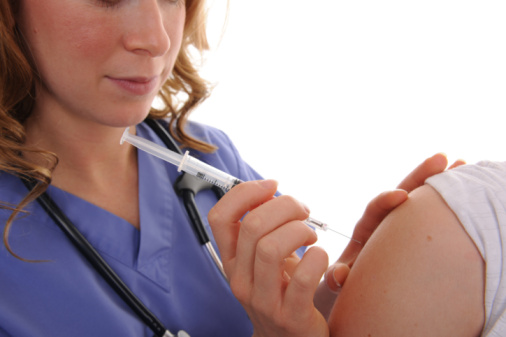
Why do we need to be vaccinated?
Learn about vaccines and why they are so important.
Vaccines are compounds made up of pathogenic micro-organisms that cause an immunological reaction in your body and protect you against possible contagion.
The vaccines contain dead or very weakened micro-organisms and your body reacts by creating defences (antibodies), just as if it were really being attacked. As a result, if a pathogenic element reaches you in the future, the immune response will be immediate and you won’t suffer from the disease.
This type of prevention has meant that, in the last century and a half, diseases which caused thousands of deaths from large scale epidemics, such as smallpox, the measles, poliomyelitis, diphtheria or whooping cough, have been practically eradicated from our region.
The first known vaccine dates from 1796, when a British scientist, Edward Jenner, inoculated healthy patients with the contents of smallpox pustules in order to get a defensive reaction. However, we owe scientific vaccinology to Dr. Pasteur, who discovered the vaccine for rabies in 1880.
Most vaccines are administered in the first years of life, when babies are more likely to fall ill and are weaker. Moreover, proper immunization is ensured before they start school when more contagion is likely due to greater contact with all types of germs.
Adults too need vaccines to protect themselves against certain diseases like tetanus, rubella, pneumococcus or flu, which, in adulthood, can have more serious consequences than in childhood, or they may require a booster after 10 years.
They can be administered subcutaneously by injection or orally, and normally several doses are necessary for full and proper immunization.
Depending on the epidemiology of the area, each country draws up an official calendar with the recommended vaccines, for the childhood period from 0 to 14 years. In Spain, each Autonomous Community has its own vaccination calendar and, though it is similar, it does not contain the same vaccinations or the same ages.
The Ministry of Heath has been considering the possibility of drawing up a common calendar in order to avoid shortcomings in the vaccination of migrant people.
Paediatrician Associations, like the AEP (Spanish Association of Paediatrics) offers an indicative calendar with the vaccines they consider systematic, i.e., very important, recommended vaccines, which are important but can be prioritized depending on the resources available for public funding and vaccines for risk groups, aimed preferably at people in special epidemiological situations.
Do vaccines pose risk?
Experts remind us that the minimum risks we run when receiving a vaccine are much less than those deriving from contracting the disease.
Most reactions we may have following a vaccination are slight and short-lived, such as loss of appetite, a slight temperature, swelling in the area around the injection.
If you have children, check your community’s vaccination calendar and ask your paediatrician or doctor if you are in doubt about administering any vaccinations. It is extremely important to be well informed. We are talking about your health and that of your family.

